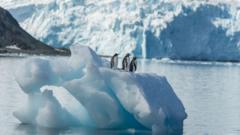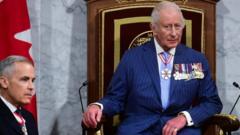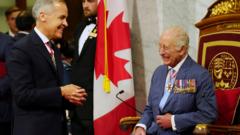Chile's President Gabriel Boric traveled to Antarctica on Friday in a historic visit aimed at reinforcing the nation’s territorial claims amidst increasing global interest in the continent. This unprecedented trip marks the first time a sitting president from Latin America has set foot in Antarctica, as confirmed by his office.
Chile's President Makes Historic Antarctic Visit to Assert Sovereignty

Chile's President Makes Historic Antarctic Visit to Assert Sovereignty
In a landmark move, Gabriel Boric becomes the first sitting Latin American president to visit Antarctica, emphasizing territorial claims in the region.
The delegation, which included officials from various sectors, visited the Amundsen-Scott South Pole Station, a U.S. research facility. President Boric referred to the expedition as a significant step, asserting that it reaffirmed Chile's sovereignty in the region. “This is a landmark event for our country,” he stated, accentuating the growing competition for influence in Antarctica.
As the Arctic becomes a focal point of international attention due to climate change and its implications for trade routes and natural resource access, Antarctica has traditionally stayed somewhat out of the spotlight. However, following over a century since explorers first staked territorial claims, interest in the cold, distant land is escalating.
Antarctica's governance relies on the Antarctic Treaty System, which stresses that the area should be utilized for peaceful purposes only. The agreement, established during the Cold War, aims to keep the continent militarily free while managing overlapping territorial assertions among nations.
Boric's visit signals a shift in dynamics as nations examine their position and influence in this vast, uncharted territory.
As the Arctic becomes a focal point of international attention due to climate change and its implications for trade routes and natural resource access, Antarctica has traditionally stayed somewhat out of the spotlight. However, following over a century since explorers first staked territorial claims, interest in the cold, distant land is escalating.
Antarctica's governance relies on the Antarctic Treaty System, which stresses that the area should be utilized for peaceful purposes only. The agreement, established during the Cold War, aims to keep the continent militarily free while managing overlapping territorial assertions among nations.
Boric's visit signals a shift in dynamics as nations examine their position and influence in this vast, uncharted territory.




















